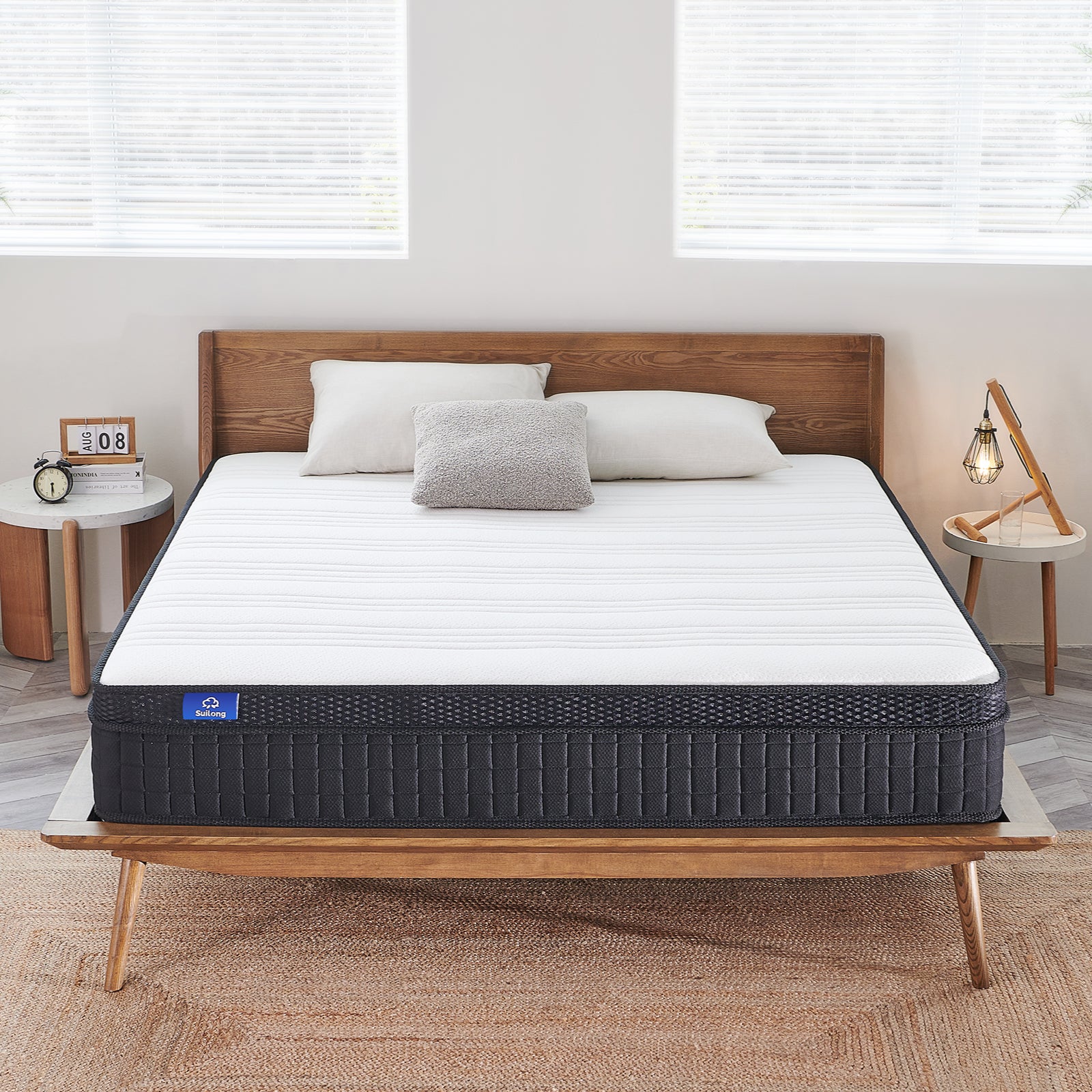How to Fall Asleep Fast

Say goodbye to insomnia! 8 tips to fall asleep easily
Want to get a sweet dream, but always toss and turn and find it hard to sleep? You are not alone. With the accelerated pace of modern life, sleep issues have become a problem for many people. But fortunately, science and research have provided us with a range of strategies to improve the quality of our sleep. In this article, we'll explore 8 practical ways to help you fall asleep quickly and have a deep sleep experience every night.
1. Deep Breathing: Finding Inner Peace
Deep breathing is not just about inhaling and exhaling. It helps slow the heart rate and lower blood pressure while reducing stress hormones.
Why it works: When we are anxious or stressed, our breathing becomes fast and shallow, resulting in too little carbonate. Deep breathing balances the ratio of oxygen to carbonates.
Practical Tip: Try lying down, relaxing your body, and then breathing deeply. Focus your attention on your breathing, which will help disperse distractions.

2. Choosing the right mattress: the foundation of sleep
The choice of mattress is much more important than we think.
Why it works: The firmness and material of the mattress is directly related to the support of the spine and the distribution of pressure points, affecting the quality of sleep.
The Suilong Advantage: The Suilong mattress combines ergonomics and material science to ensure that the sleeper receives the right support in any sleep position.
3. Sleep in the dark: Creating the optimal environment for the brain
Our biological clock is closely linked to light.
Why it works: Dark environments prompt the brain to release melatonin, a chemical that helps us fall asleep.
Practical tips: Use blackout curtains, avoid using electronics before bed, or consider using blue light filters.
4. Adjust the room temperature: find the optimal level of comfort
A moderate room temperature helps the body relax and prepare for deep sleep.
Why it works: Studies have shown that a slight drop in temperature can promote falling asleep. This is because as we fall asleep, our body temperature naturally drops.
Practical tips: Use a thermostat to ensure a constant room temperature and consider wearing light pyjamas.
5. Use technology to improve sleep quality
In the age of high technology, why not use it to help you sleep?
Why it works: White noise machines, for example, can simulate natural sounds such as rain and ocean waves, helping to mask distracting noises.
Practical tips: In addition to white noise machines, consider smart mattresses, which can adjust firmness or temperature based on your body's response.

6. Mindfulness: Meditation and relaxation techniques
Meditation is an ancient technique used to train the brain to relax and focus.
Why it works: Meditation helps to lower stress and reduce the likelihood of insomnia.
Practical tips: Find a quiet place and try a simple breathing meditation or experience a guided meditation application.
7. Purposeful daydreaming: Bringing thoughts to a beautiful scene
Positive thought stimulation can provide the brain with signals to relax.
Why it works: Imagining a relaxing scene, such as a beach, can help the brain unwind from everyday tensions and stresses.
Practical tips: When lying down in bed, close your eyes and envision yourself on holiday, completely relaxed.
8. Diet and sleep: choice of dinner
The food we eat can affect the chemical composition of the brain.
Why it works: Carbohydrates, for example, promote the release of melatonin, while caffeine and alcohol may interfere with sleep.
Practice tip: Choose more carbohydrates for dinner and avoid coffee and alcohol.
A good night's sleep is vital for both our body and mind. By employing the above methods, you will not only improve the quality of your sleep, but also the quality of your life. Whether you're looking for a new mattress or want to try meditation and deep breathing, it's worth making the effort for a better night's rest. Don't let insomnia become a regular part of your life, start today and journey towards quality sleep!
Read More:
https://suilong.org/blogs/blogs/a-full-breakdown-of-bed-frame-options-for-hybrid-mattresses
https://suilong.org/blogs/blogs/full-vs-queen-mattress
https://suilong.org/blogs/blogs/how-to-decide-the-thickness-of-the-spring-mattress-to-buy
https://suilong.org/blogs/blogs/unlocking-the-role-of-bed-slats-support-and-comfort-explained
https://suilong.org/blogs/blogs/queen-vs-full-mattresses
FAQs
Q: What types of mattresses are best for helping with sleep issues?
A: The ideal mattress largely depends on individual preference. Some people prefer a firmer surface like a hybrid mattress, while others might opt for the contouring comfort of memory foam. It's crucial to find a mattress that supports your sleeping position and alleviates any pressure points. Companies like Suilong offer a variety of ergonomically designed mattresses to cater to different needs.
Q: How does room temperature affect sleep quality?
A: Room temperature plays a significant role in sleep quality. A cooler room, typically around 60-67°F (15-19°C), is believed to be ideal for sleep as it helps lower the body's core temperature, signaling the body that it's time to sleep. A room that's too hot or too cold can disrupt the sleep cycle.
Q: Why is it recommended to limit screen time before bed?
A: Electronic screens from phones, tablets, and TVs emit blue light. Exposure to blue light suppresses the production of melatonin, a hormone that regulates sleep. It's advisable to reduce screen time at least an hour before bedtime to help increase melatonin production and improve sleep quality.
Q: Can certain foods or drinks help improve sleep quality?
A: Yes, foods rich in tryptophan, magnesium, and melatonin can promote sleep. Examples include turkey, almonds, walnuts, cherries, and milk. It's also beneficial to avoid caffeine and alcohol close to bedtime, as they can disrupt the sleep cycle.
Q: How can daydreaming or visualization techniques aid in falling asleep?
A: Visualization or focused daydreaming helps divert the mind from daily stressors and anxieties. By visualizing a peaceful scenario or recalling a happy memory, the brain shifts into a more relaxed state, making it easier to drift into sleep.
-
Posted in
Lifestyle, Sleep Experts, sleep health, Sleep Tips
















